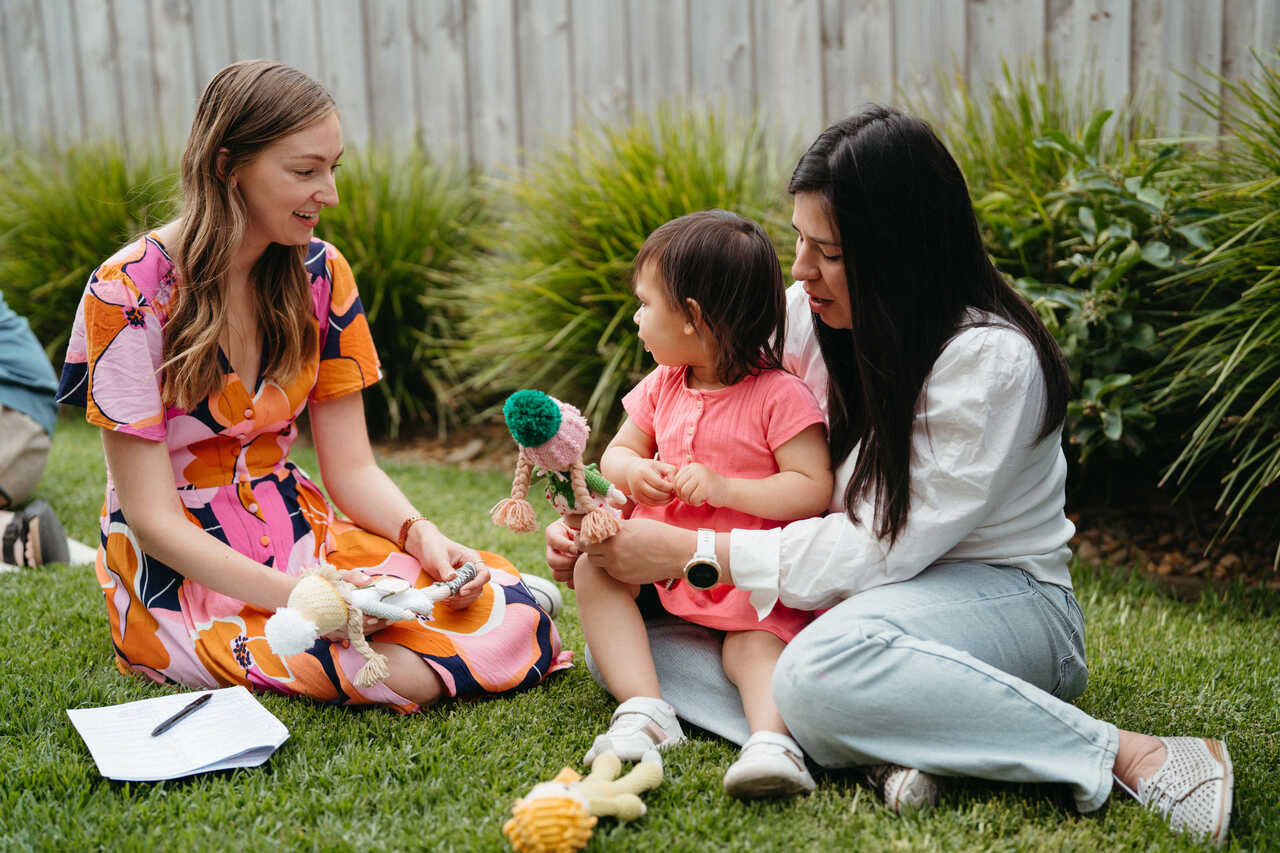Career Pathways in Behaviour Analysis
BCBA and CBA: What are they?

Board Certified Behaviour Analysts (BCBA) and Certified Behaviour Analysts (CBA) study the science of behaviour and apply this knowledge to make real-world changes, to improve people's lives, in an ethically sound way. Behaviour analysts can specialise in a variety of areas – behaviour is everywhere! Our behaviour analyst (BCBA and CBA) at Cheeky Raspberries specialises in supporting autistic children and children with developmental delays to learn new skills and behaviours, and supervising others to provide scientifically supported and highly effective therapy.
The Behaviour Analyst Certification Board oversees Board Certified Behaviour Analysts (BCBAs) in Australia, the United States, Canada, and the United Kingdom. They ensure best practices in behaviour analysts through competencies, appropriate accreditation (degrees, coursework, supervised experience), ongoing certification requirements, and provide the ethical code by which all behaviour analysts must abide. They also provide a registry where you can find all members. The Behaviour Analyst Certification Board, which is based in America, will continue to oversee BCBAs in Australia but will cease providing new credentials to Australians from 2027.
As the demand for effective, gold-standard, scientifically supported, and ethical services in behaviour analysis grows rapidly worldwide, the need for nation-specific boards has become more important. In collaboration with the well-established BACB, the Association for Behaviour Analysis Australia (ABAA) has developed Australian-specific credentials, standards, ethical codes, and oversight, supporting the development and advancement of behaviour analysis in our country. Read more in their recent publication on Australian regulation here. Our Cheeky Raspberries director, Stephanie Berry, works on the Supervision Standards committee to continue to improve the quality of supervision for Australian behaviour analysts. ABAA also provides a registry where you can find all members.
Career Options and Education in Behaviour Analysis
At Cheeky Raspberries, our director Stephanie Berry MEd(ABA), BCBA, CBA has completed studies through the Florida Institute of Technology, qualifying her to provide supervision for those working in the field.
Educators looking for more resources – The Victorian government has worked with BCBAs and now offers resources for educators. At Cheeky Raspberries we also offer professional development for educators and those working with children. We also offer theory training for parents and carers, contact us to learn more.
Registered Behaviour Technician (RBT) – A paraprofessional qualification for those who work directly under a BCaBA or BCBA. Includes 40 hours of online coursework (now free), a competency assessment, and passing an exam. Maintaining certification requires ongoing supervision, maintaining ethical standards, and annual renewal.
Board Certified assistant Behaviour Analyst (BCaBA) – A professional who works under the supervision of a BCBA. Requires university coursework including a degree, behaviour analytic coursework, 1000-1300 hours of supervised fieldwork, and passing an exam. Maintaining certification requires ongoing continuing education requirements, maintaining ethical standards, and recertifying every 2 years. Requirements are at a lower level than the BCBA qualification. Obtaining a BCaBA qualification is not required to advance to BCBA, so many choose to pursue the BCBA qualification instead. BCaBA may be appropriate for those who prefer to have a higher level of ongoing supervision from a BCBA and lower initial requirements for qualification. Please note, from 2027, Australians will no longer be eligible to apply for the BCaBA credential, and are advised to work towards CBAU instead.
Certified Behaviour Analyst - Undergraduate (CBAU) – A professional who works under the supervision of a CBA. Requires university coursework including an undergraduate level degree, behaviour analytic coursework, and 1000 hours of supervised fieldwork. Those who hold BCaBA and work in Australia may apply for the CBAU qualification without further studies. Obtaining a CBAU qualification is not required to advance to CBA, so many choose to pursue the CBA qualification instead. Retaining certification requires continuing professional development, maintaining ethical standards, and annual recertification.
Monash Master's course – Suitable for those pursuing the BCBA credential, or those who are looking to learn evidence-based, effective, and practical behaviour management strategies, such as educators (scholarships available from the Victorian Government to support inclusive education), psychologists, speech pathologists, occupational therapists, and anyone working/looking to work in the behaviour field who holds a bachelor degree. One of our Cheeky Raspberries therapists was granted the full scholarship and is working under the supervision of our director as she completes this Master's course.
Board Certified Behaviour Analyst (BCBA) – A professional who may work independently providing behaviour analytic services, and supervise others working in the field. Requires university coursework including an expert Master's degree (see above), behaviour analytic coursework, 2000 hours of supervised fieldwork, and passing an exam. Retaining certification requires ongoing continuing education requirements, maintaining ethical standards, and recertifying every 2 years. Please note, from 2027, Australians will no longer be eligible to apply for the BCBA credential, and are advised to work towards CBA instead.
Certified Behaviour Analyst (CBA) – Similar to a BCBA, a CBA is a professional who may work independently providing behaviour analytic services, and supervise others working in the field. Those who hold BCBA and work in Australia may apply for the CBA qualification without further studies. Without a BCBA qualification, obtaining CBA requires an expert-level PhD or Master's degree (AQF 9 or 10), behaviour analytic coursework, and 1500 hours of supervised fieldwork. Retaining certification requires continuing professional development, maintaining ethical standards, and annual recertification. Those looking to establish Australian careers in Behaviour Analysis at the supervisory level should be looking to work towards this CBA qualification.






